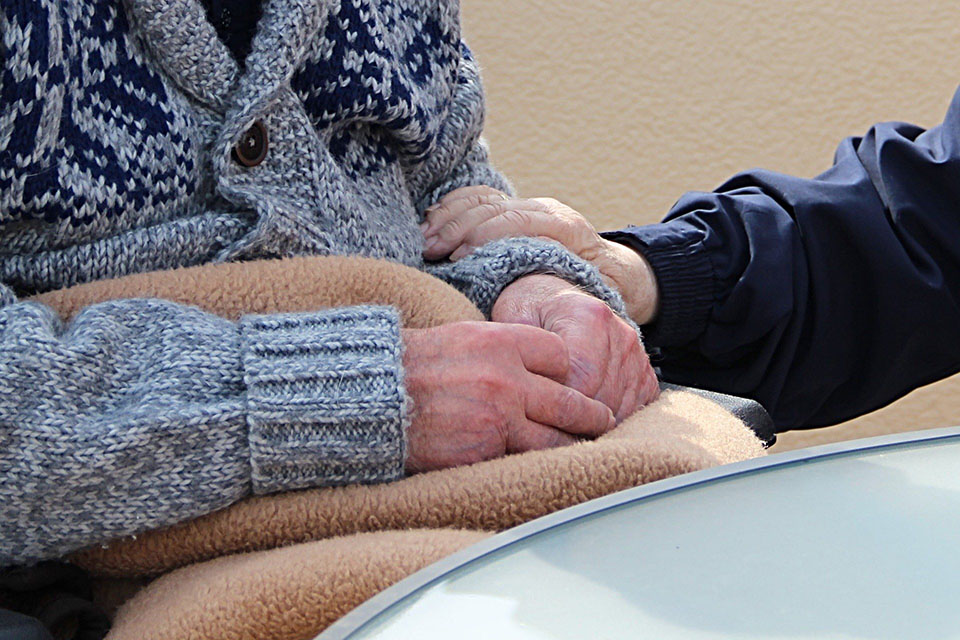Lamy Center Caregiver Connection: The Most Difficult Decision and How to Tell the Dementia Patient
Written By: Rudi Lamy, MLS, MAS, Consultant to the Peter Lamy Center on Drug Therapy and Aging
Somewhere near the beginning of the end of their struggle, your loved one with dementia will forget that they are ill and may forget the human urge to “rage against the dying of the light” (Dylan Thomas, Poem: “Do Not Go Gentle into That Good Night,” 1951). But before that terrible and melancholy moment, you as a caregiver may have already come to the inevitable conclusion that, like the Ancient Roman hero Horatius, you are standing alone in your battle against this unbeatable enemy.
You will, as I have done, fight the good fight against your loved one’s dementia until you are forced to concede that you need help; you simply cannot go on alone. And, it is then that you begin to look for a facility with a dementia care and/or memory care unit that has the people and resources that can, and will, care for your loved one far better than you are able to at this time.
Choosing a Facility
Selecting the facility where your loved one will live in the end stages of their illness is no easy task. I did a lot of research to ensure the facility that I chose would be able to meet my wife’s needs.
My search began with our attorney. He is local and a specialist in the area of family and elder law. I used the online Maryland Access Point (M.A.P.) to find information about nearby assisted living facilities. I also spoke to the owner and staff at our pharmacy. Our pharmacy has a separate practice that specializes in providing pharmacy services for assisted living facilities. I did drive by “inspections” to help familiarize myself with the buildings’ exteriors and the neighborhoods. I also did site visits to learn more about the residents, security, safety measures, and condition of the facility interior.
In the end, I found a home for my wife that came with very good recommendations from our attorney; from a neighbor, who works in a similar occupation and was familiar with assisted living; and from the staff at our pharmacy who, as it turns out, handles the pharmacy services for the facility I chose.
Breaking the News
Once you’ve made the decision to place your loved one in “God’s Waiting Room,” you must find a way to explain that decision to him or her.
But, when is the right time to break the news?
Finding the “right time” to tell my wife took me almost a year. It was a year ill spent. In retrospect, I now know that I was looking not for her “right time,” but mine. I could not bring myself to let her go and relinquish what had long been my responsibilities to strangers.
As for how to break the news, I consulted my wife’s neuropsychiatrist, our social worker, and my support group. The recommendations from all three were:
- DO NOT do it alone. Have someone with you to help.
- DO NOT force the conversation. Make sure your loved one is comfortable before you begin the discussion.
- Emphasize to your loved one that you have their best interest at heart. Tell him or her this decision is best for them because of problems you are experiencing.
It was very good advice. It worked brilliantly. Of course, I was a total wreck on the day we moved my wife. My stepdaughter, who supported me on moving day, was a wreck the next day. But the move was made, and it went quite smoothly, all things considered.
Remember, the “right time” to break the news is as soon as YOU are ready – as soon as your loved one needs more help than you can give. You will know it when it happens. Don’t be like me and ignore it for a year (or more).
Thanks for reading, and good luck.
Rudi Lamy
Caregiver

